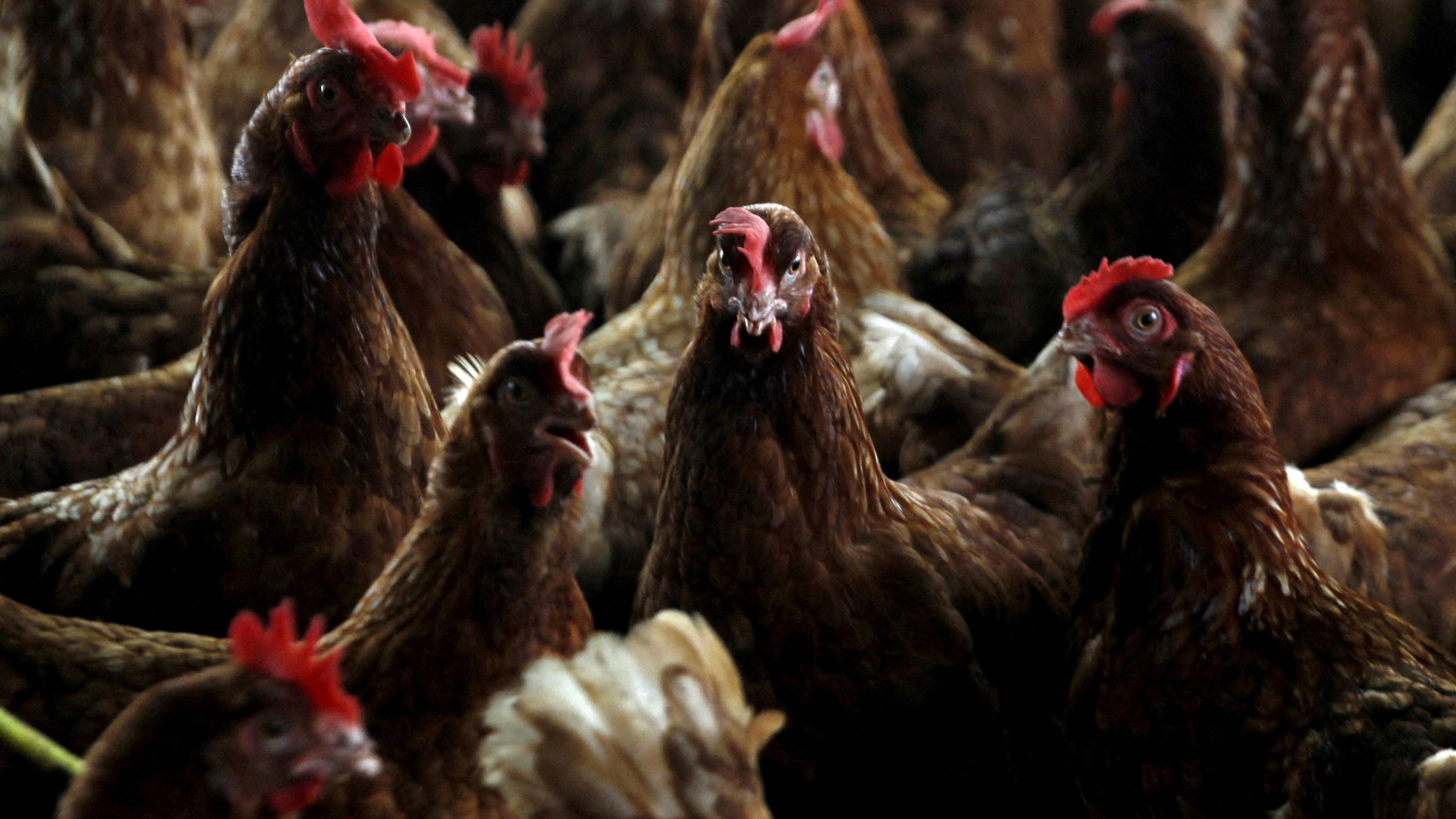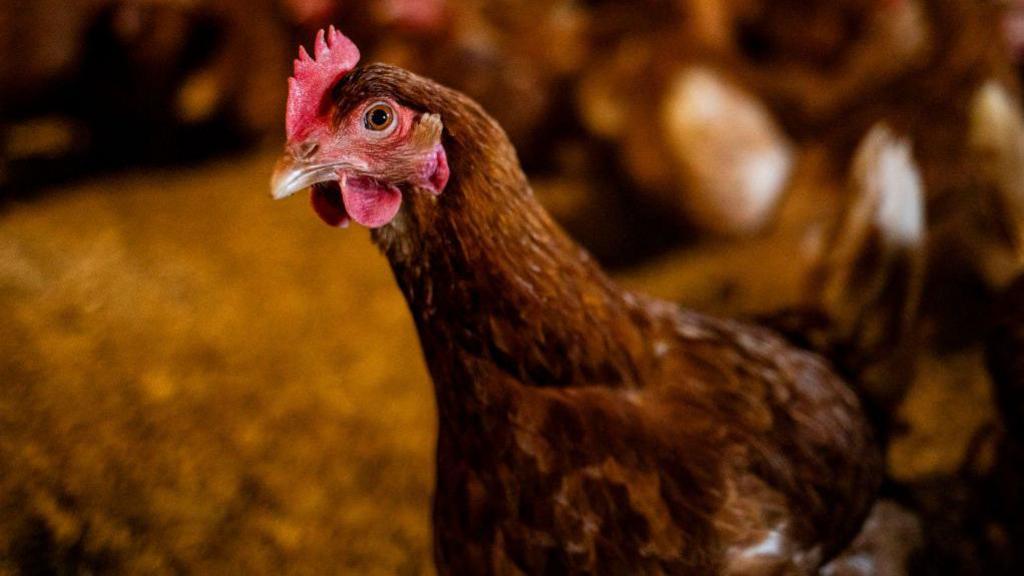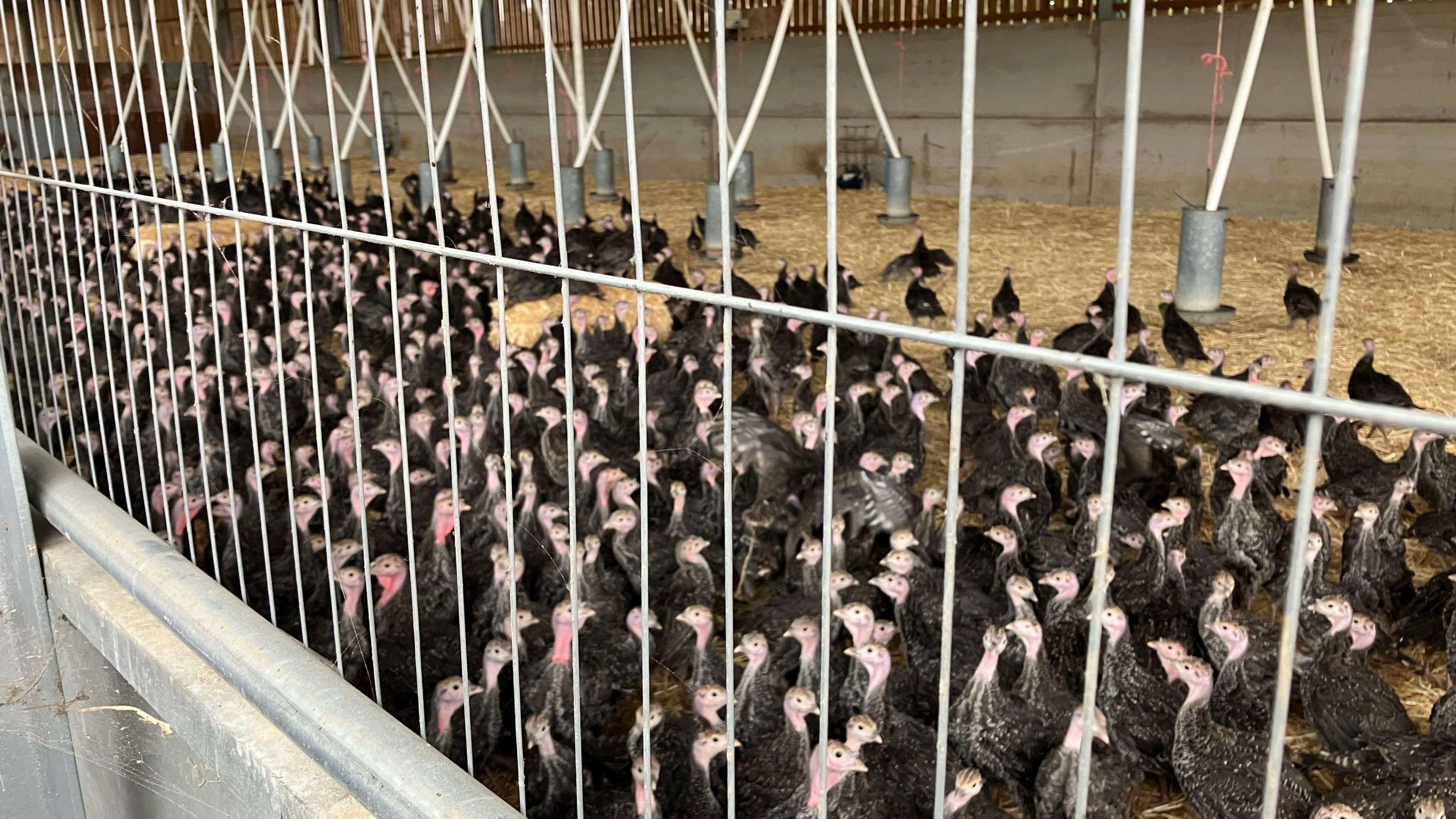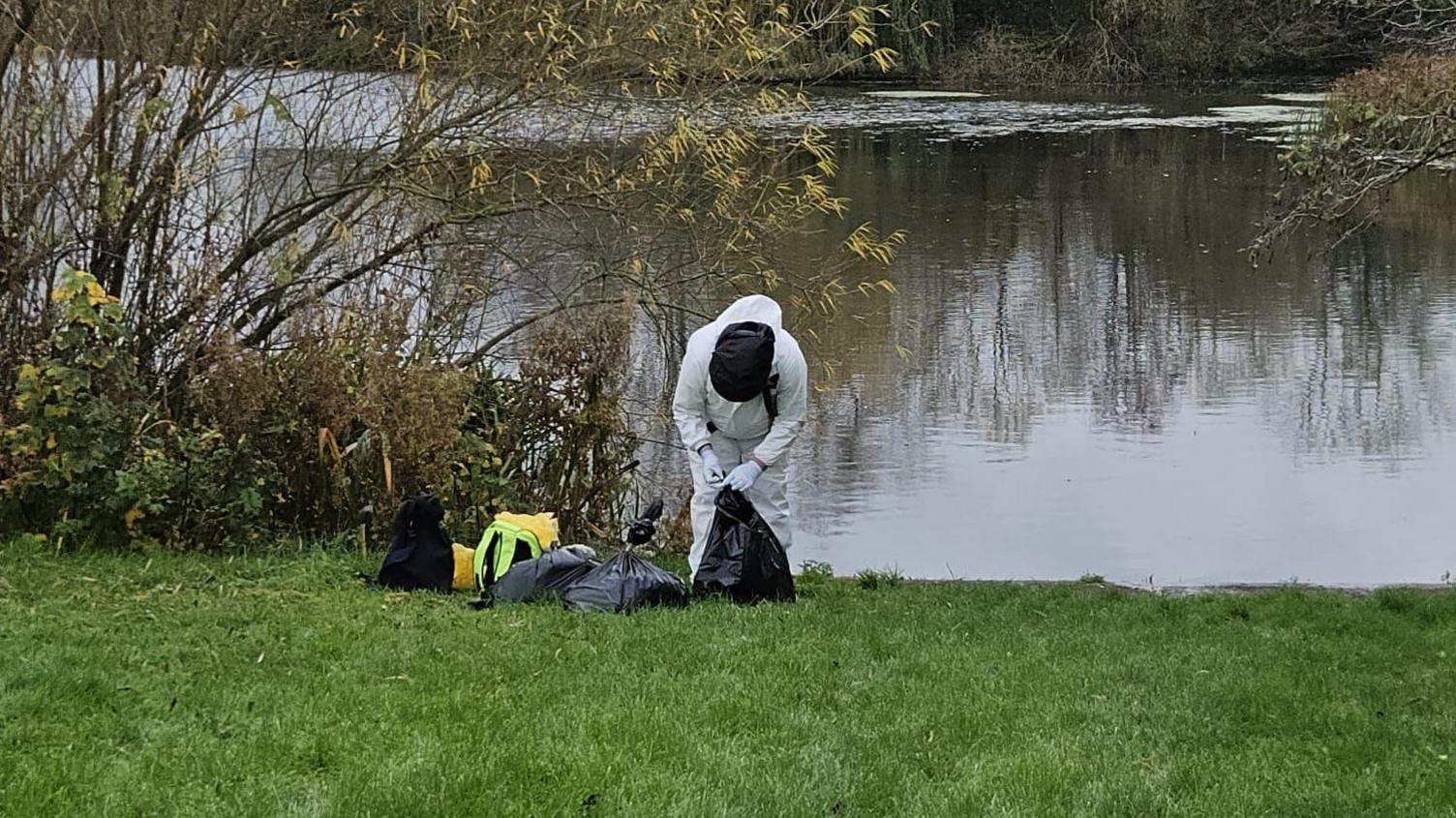Bird flu risk to public 'very low'

The bird flu case at Hallow in Worcestershire was confirmed on Saturday
- Published
Residents living in Worcestershire have been told the risk of infection is "very low" after bird flu was confirmed in the county.
The Department for Environment, Food and Rural Affairs (Defra) said the H5N1 virus had been identified in commercial poultry near Hallow, outside Worcester, on Saturday.
Lisa McNally, director of Public Health at Worcestershire County Council, said that while risk was low to people, anyone who had come into contact with a diseased bird and was concerned about their health should seek medical advice.
Defra said last week that all poultry on the affected premises would be humanely culled.
Ms McNally said that from a food safety perspective, the risk to the public was again low.
"We are working closely with local Trading Standards and [the Animal and Plant Health Agency] to support bird keepers, pet owners and commercial flock managers, to monitor for signs of disease and take all necessary precautions to prevent its spread," she said.
Public Health advises the following:
Avoid contact with birds and do not touch or handle sick, dying, or dead birds, and keep pets away from them as well
Wash your hands regularly with soap and water or use an alcohol-based hand rub, especially after being outdoors
Stay away from areas with known outbreaks of bird flu, and avoid contact with bird droppings
Cook poultry and eggs thoroughly as bird flu cannot spread through properly cooked food
In light of the Hallow outbreak, a 3km (1.9 miles) protection zone and a 10km (6.2 miles) surveillance zone has been declared around the premises.
Get in touch
Tell us which stories we should cover in Hereford & Worcester
Follow BBC Hereford & Worcester on BBC Sounds, Facebook, external, X, external and Instagram, external.
Related topics
- Published9 November

- Published10 November

- Published10 November
